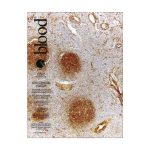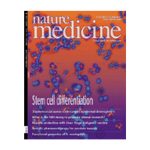Hematopoietic stem cell quiescence maintained by p21cip1/waf1.
Cheng T, Rodrigues N, Shen H, Yang Y, Dombkowski D, Sykes M, Scadden DT.
Abstract
Relative quiescence is a defining characteristic of hematopoietic stem cells, while their progeny have dramatic proliferative ability and inexorably move toward terminal differentiation. The quiescence of stem cells has been conjectured to be of critical biologic importance in protecting the stem cell compartment, which we directly assessed using mice engineered to be deficient in the G1 checkpoint regulator, cyclin-dependent kinase inhibitor, p21cip1/waf1 (p21). In the absence of p21, hematopoietic stem cell proliferation and absolute number were increased under normal homeostatic conditions. Exposing the animals to cell cycle-specific myelotoxic injury resulted in premature death due to hematopoietic cell depletion. Further, self-renewal of primitive cells was impaired in serially transplanted bone marrow from p21-/- mice, leading to hematopoietic failure. Therefore, p21 is the molecular switch governing the entry of stem cells into the cell cycle, and in its absence, increased cell cycling leads to stem cell exhaustion. Under conditions of stress, restricted cell cycling is crucial to prevent premature stem cell depletion and hematopoietic death.





